Cities
20 Cities And Towns That Should Probably Rethink Their Names

Across the globe are towns and cities with names so bizarre, they leave travelers doing double takes. It’s hard to believe these places exist outside of comedy sketches. Blame translation fails, local slang, historical aspects, or just plain bad luck—whatever the reason, these 20 real locations sound anything but ordinary. Get ready to raise an eyebrow.
Hell, Michigan, USA
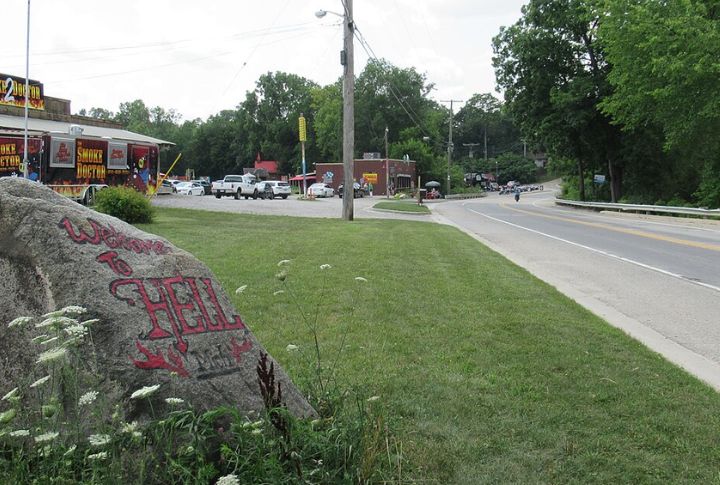
This name sounds like eternal damnation. But there is a backstory to it. Some say an early settler told officials to “name it Hell for all I care.” The town now fully leans into the theme, offering devilish souvenirs and frozen “Hell” in winter. Tourists come for laughs and bragging rights.
Shitterton, Dorset, England
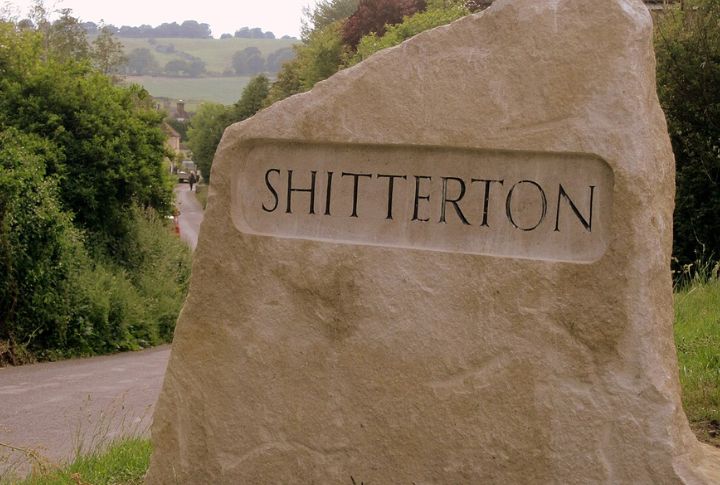
This ancient village’s name reads like crude toilet humor. It traces back to Old English, describing a farmstead near a stream once used for waste. Locals tired of sign theft finally installed a heavy stone marker. Instead of shame, residents now show quiet pride in the place’s history.
Poo, Himachal Pradesh, India
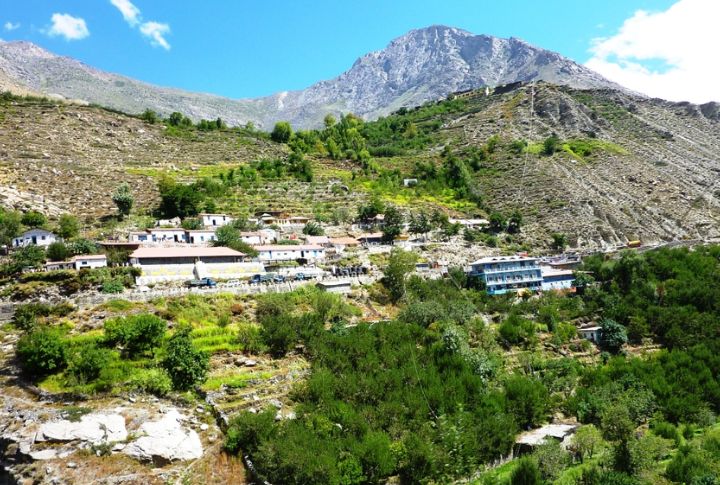
To English speakers, it sounds childish and scatological. Yet this town sits among serene Himalayan peaks and has roots in local dialects far removed from toilet talk. The name predates modern slang by centuries. Its beauty sharply contrasts with the snickers it unintentionally invites from foreign tourists.
Middelfart, Denmark
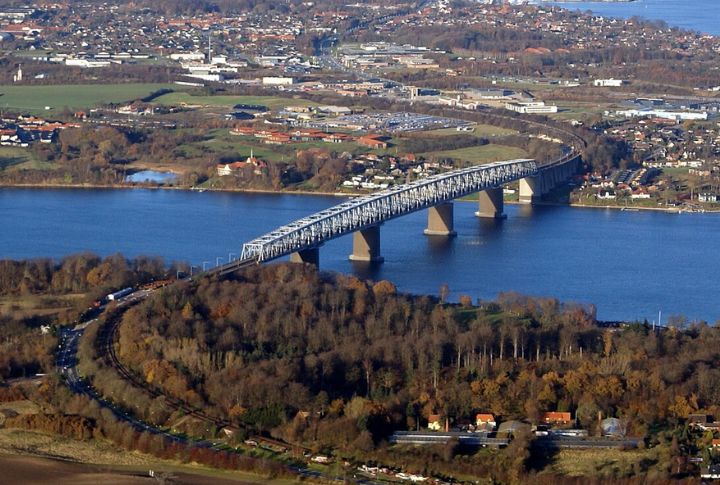
Despite how it sounds, this name isn’t about gas. It originates from “Melfar,” an old Danish word meaning “middle crossing,” referencing its spot on the Little Belt strait. Bridges span the nearby waters, unintentionally amplifying the flatulence pun. Visitors still chuckle, but locals stay unfazed.
Sod, West Virginia, USA
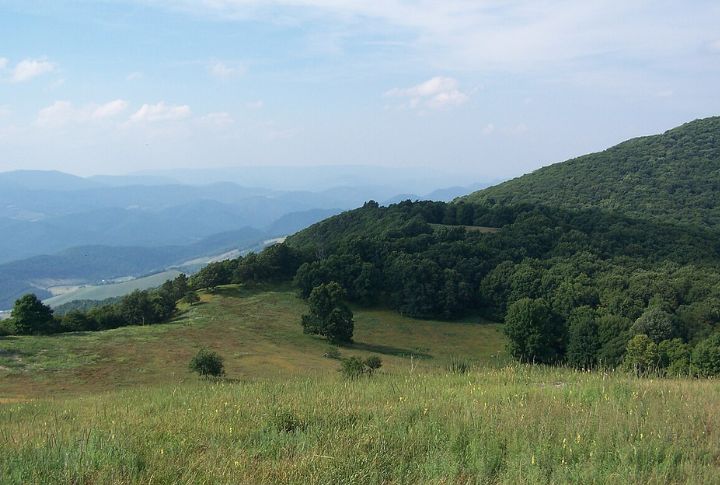
To Brits, this word comes off as a mild insult or dismissal. It’s often used derogatorily to refer to a person (e.g., “You lazy sod”). In the U.S., it likely relates to turf or grassland, a fit for a rural Appalachian setting. The meaning shift across cultures adds unintentional humor. It’s one of many oddly named pockets in the state.
Accident, Maryland, USA
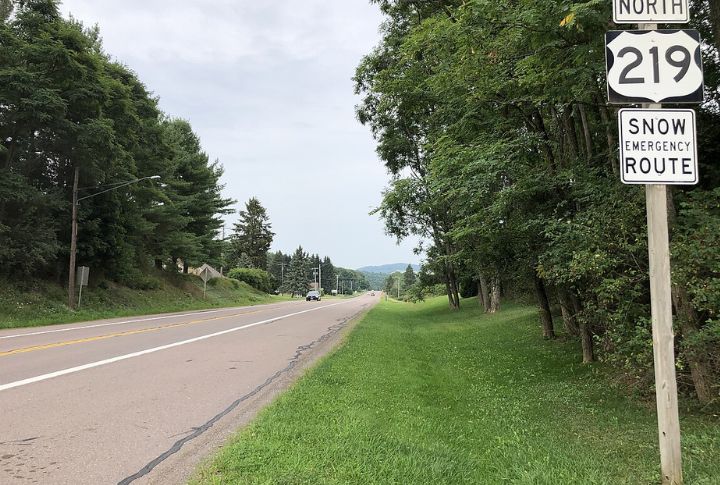
This town wasn’t named for irony—it came from a colonial land survey. Two men accidentally claimed the same parcel, and the name stuck. Road signs referencing “accidents in Accident” now make for prized photo ops. Locals do not find it as weird, but we all know it is.
Toad Suck, Arkansas, USA
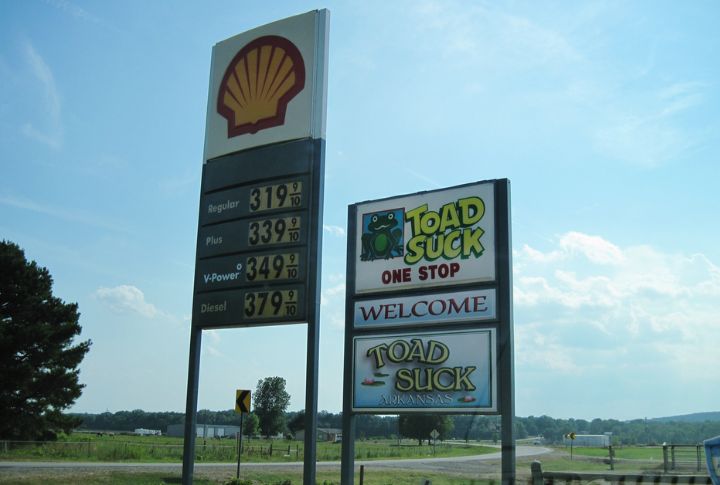
Despite sounding bizarre, the name ties back to steamboat history. Some believe its name originates from 19th-century steamboat crews who would wait at a local tavern, drinking until they “swelled up like toads.” Toad Suck Daze, an annual festival, celebrates the town’s odd charm. The name certainly hasn’t hurt its fame.
Swastika, Ontario, Canada
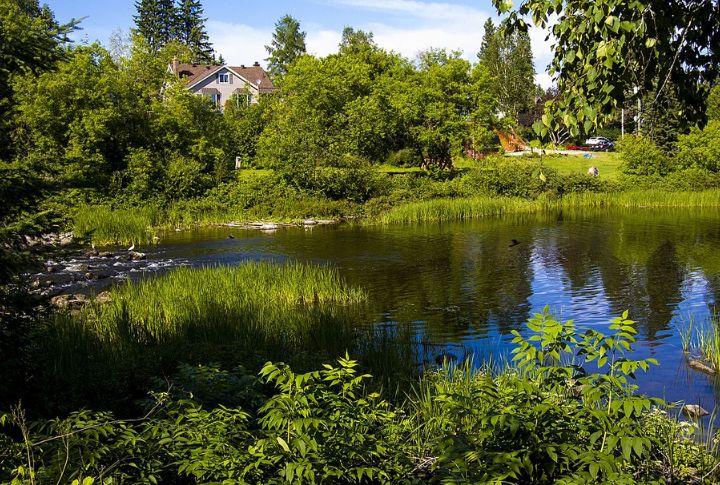
While Swastika, Ontario, was not named with any hateful intent, its name now stands as a reminder of one of history’s darkest chapters. Despite its pre-Nazi roots, the term’s overwhelming association with Nazi ideology and genocide renders it highly inappropriate by modern standards, especially outside of its historical context.
Boring, Oregon, USA
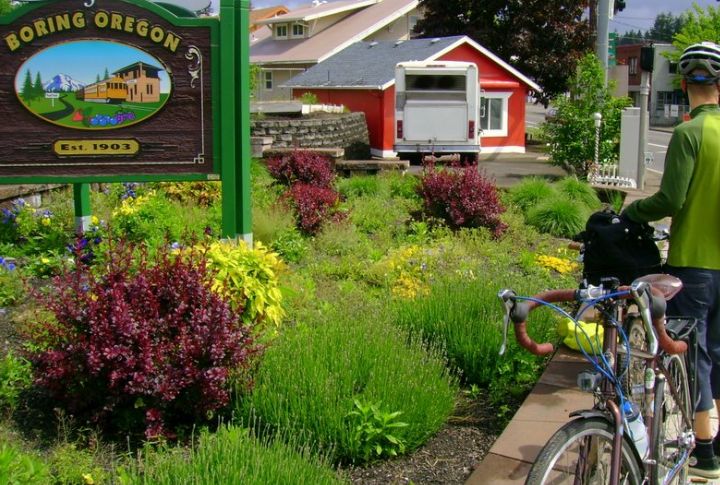
In everyday language, “boring” means dull or uninteresting. So, a town named Boring sounds like it’s advertising itself as a place no one would want to visit, which can be unintentionally comedic or dismissive of the community’s actual charm. The name practically writes its own punchlines, making the town a frequent target for jokes and tourist curiosity.
Cape Disappointment, Washington, USA
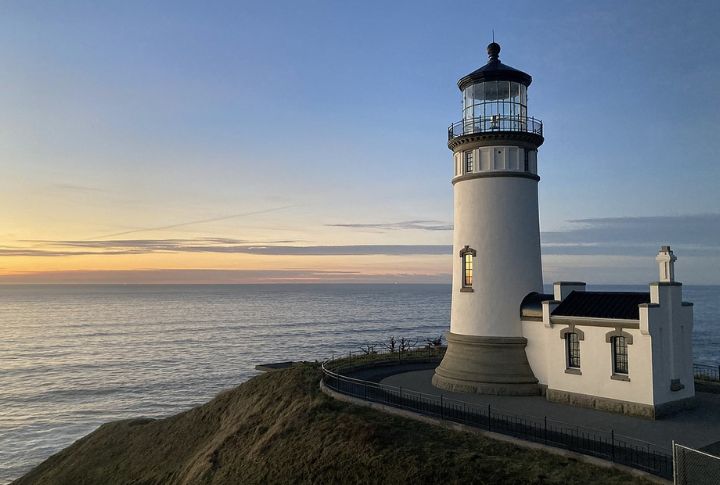
Named by Captain John Meares in 1788 after failing to find a navigable river at the location. It’s now a state park with a lighthouse and various recreational activities. This place also lives up to its name as the area around it is known as the “Graveyard of the Pacific” due to the numerous shipwrecks caused by the treacherous Columbia River bar.
Die Hel, Western Cape, South Africa

Directly translating to “The Hell” in Afrikaans, this remote valley settlement (also known as Gamkaskloof) earned its name due to its incredibly steep and challenging access road, which felt like descending into “hell.” It’s a descriptive name for its historical isolation and difficult terrain.
Moron, Argentina

This bustling city shares its name with a derogatory term but has nothing to do with foolishness. Located in Buenos Aires Province, there is no single, universally accepted explanation for the name’s origin, but several possibilities exist. It might be named after Diego Moron, whose widow was a landowner in the area.
Spuzzum, British Columbia, Canada

While Spuzzum isn’t inappropriate in any offensive sense, it’s often misjudged because of its quirky sound and pop culture reputation as a “nowhere” town. It’s a reminder that linguistic unfamiliarity and cultural misunderstanding can turn even respectful Indigenous place names into targets for mockery.
Dorking, England
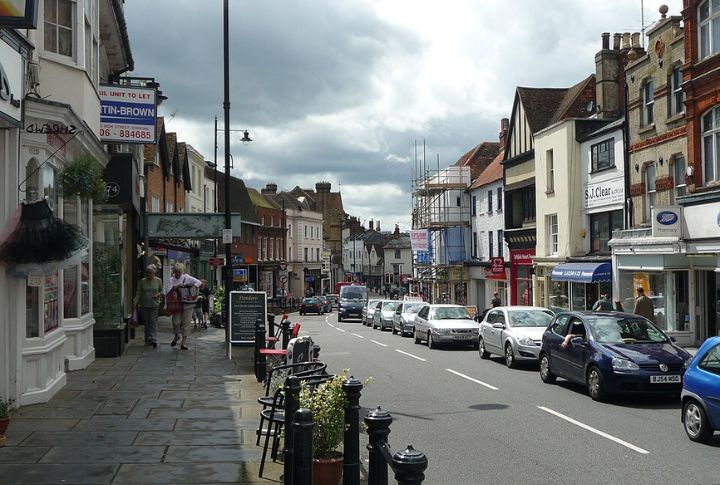
Found in Surrey’s countryside, Dorking takes pride in Roman roots and scenic hills, but its name often overshadows that beauty. In today’s slang-heavy world, it unintentionally draws tee-hees—especially from younger visitors—due to its overlap with a lighthearted insult. Though historically justifiable, the name now walks a fine line between quaint and comical.
Silly, Belgium

Despite the name, this Walloon town takes itself quite seriously. Silly comes from the nearby Sille stream, not foolish behavior. Still, English-speaking tourists can’t help but smile at road signs or stamps marked “Silly.” Ironically, the town hosts serious cultural festivals and even a respected craft brewery, adding depth to its playful name.
Mold, Wales
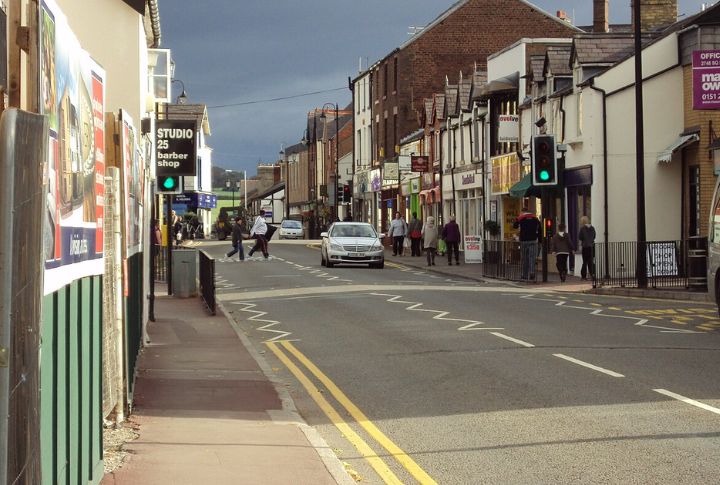
While the word conjures decay or damp walls, this town’s origin is quite a story. “Mold” comes from “mont haut,” meaning “high hill” in Norman French. Its medieval charm and lively markets overshadow the unfortunate English translation. Visitors often arrive expecting the worst and leave surprised.
Come By Chance, Newfoundland And Labrador, Canada

Another one from Newfoundland, this name, while not vulgar, is incredibly passive and lacks any sense of purpose or intention. It sounds like a place that was settled without any planning or reason, almost as if it was discovered purely by accident, and no one bothered to give it a proper name. For a modern community, it projects a rather aimless image.
Lick Skillet, Tennessee, USA

The name may reflect rustic charm, but to outsiders, Lick Skillet sounds more like a greasy diner than a town. It evokes backwoods stereotypes and outdated frontier slang, which can overshadow community pride or progress. In an era where place branding matters, the name may unintentionally repel visitors or investors who misread its meaning as crass.
Crapstone, Devon, England

Though it’s a peaceful village on the edge of Dartmoor, Crapstone struggles under the weight of its unfortunate name. To some ears, it sounds crude, even laughable, overshadowing its positive aspects, such as nature. Locals have had to fend off constant ridicule and sign theft. A name change could help reclaim dignity without erasing heritage.
Idiotville, Oregon, USA

Now a ghost town, Idiotville lives on through maps and folklore—but not without baggage. Originally a sarcastic jab at remote logging efforts, the name feels needlessly harsh today. Even in jest, it paints the area as foolish or worthless. Preserving history doesn’t require holding onto names that belittle the people who once lived and worked there.

